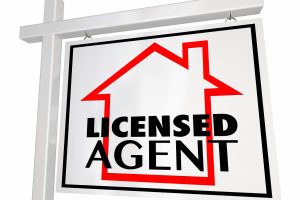As you go house hunting, it’s essential to have acquired a mortgage loan beforehand. In this case, you’ll be able to know what home value you want. But, did you know that there are several types of mortgage loans at your disposal?
Lenders will look into your financial statements, credit scores, debt to income ratio, and desired loan amount to determine the type of loan that’ll be suitable for you.
1. Conventional Mortgage
A conventional mortgage is a loan offered and secured by no-government entities such as credit lenders, banks, and mortgage companies. With this loan, the private entity will give you a fixed interest to pay monthly.
This means that no matter the years awarded for payment, the monthly charges remain the same. You may be required to make a 20% down payment on the purchase price of the home. This 20% stands in place of mortgage insurance.
Conventional is suitable for people looking to buy property as investments or buy property above $500,000. To qualify for a conventional mortgage, you need to have a good credit score of above 680 and a debt to income ratio of below 43%.
2. Adjustable Rate Mortgage
Adjustable-rate mortgages or ARMs are home loans whereby the interest rate is initially given, changes over a given period. For example, if the initial duration given is five years, then the interest rate will be adjusted after five years.
There are five main types of ARMs:
- One year ARMs – interest changes after one year
- 10/1 ARMs – interest rate changes after ten months
- 5/5 or 5/1 – Interest changes after five months
- 3/3 or 3/1 – interest rates change after3 months
- 2-step mortgage – Loan is divided into two; one interest for the first half, and another interest for the second half
While ARMs are risky, homebuyers can request high loan amounts and purchase better houses on the high-end. You can also get an ARM to settle your credit card debt.
3. Interest-only Mortgage
This type of mortgage is quite impressive; the lender here will allow you to pay only interests of the loan in a given duration. For example, if your lender gives you five years of an interest-only mortgage, you’ll pay the interest potion each month for the five years, and not the full monthly payment. After this duration, you’ll be required to pay the mortgage amount in full. This is good for those planning to sell the house after some time and for those responsible money savers.
4. FHA Loans
If your income can be categorized as low to moderate, then an FHA loan will be suitable for your home project. Federal Housing Administration loans are a government project geared towards new home buyers with credit scores below 620.
FHA itself does not give home buyers mortgages; you will have to find an entity that has been approved by FHA to offer you that service. Any entity, including banks, can be FHA-approved. In this case, if you – the home buyer – fails to pay the loan to your lender, FHA acts as insurance and refunds part of your loan to the lender. They come with a 3.5% down payment request.
5. VA Loans
VA loans are also government-funded mortgage loans but for military veterans and those in active duty. This loan has very many benefits, including 0$ down payment, zero private mortgage insurance, low-interest rates, no minimum credit score, and no prepayment penalty. However, there’s a VA funding fee that you’ll pay to fund the loan.
6. Balloon
Balloon loans are very different from the rest. When you take a Balloon mortgage, the lender will request you to pay a lump sum at the end of a given duration. This means that the months leading to payment date will not carry any payments. Sometimes there might be interests to be paid monthly; however, in such cases, the interest rates are meager.
If your income is on the high end and you know how to save your money, then getting a Balloon Mortgage is the best move. Also, in case you plan to sell the home before the payment date, then this mortgage plan will suit you.
7. Combination Loan
If you want a conventional loan but can’t afford the 20% down payment, you can opt for a combination loan. From the name, you can interpret the combination loan as a loan that consists of two loans from the same lender, going to the same home project. As earlier mentioned, the 20% down payment is paid in place of the private mortgage insurance.
If you don’t have 20%, then you’ll have to pay for the private mortgage insurance fee. However, if you don’t have money for the insurance fee, then choose two mortgage plans for your home. How does this work?
Say you want to construct a house and require a loan, you can get an ARM to finance the project. Once the project is done, you can take a 30-year loan to pay off the initial ARM and fund other home-related projects. This means that you’re left with a complete home and just one loan to sort.
If you go for the piggybank route, you’ll need to get two loans. One loan will pay 80% of your purchase price, and a second loan will pay 10% of the purchase price. So, what happens to the remaining 10%? You’ll have to cater for that amount.
The piggybank or 80-10-10 mortgage doesn’t eliminate the private mortgage insurance fee.
8. Jumbo Loans
As the government helps the public to be able to buy homes for their families, they draw a line when a borrower requests high loan amounts of about $700,000. These are referred to as Jumbo loans. In this case, a private lender would step in to fund your home project. When the entities do this, they set their own rules and requirements.
Are you ready to Get a Mortgage Loan?
The ultimate disclaimer on getting mortgage loans is acquiring information. For example, if you have a high credit score, you’d instead get a conventional mortgage than an FHA loan. What you should do before settling on a mortgage plan is thoroughly consult your lender for the best advice. You can also ask a real estate agent for unbiased advice.






